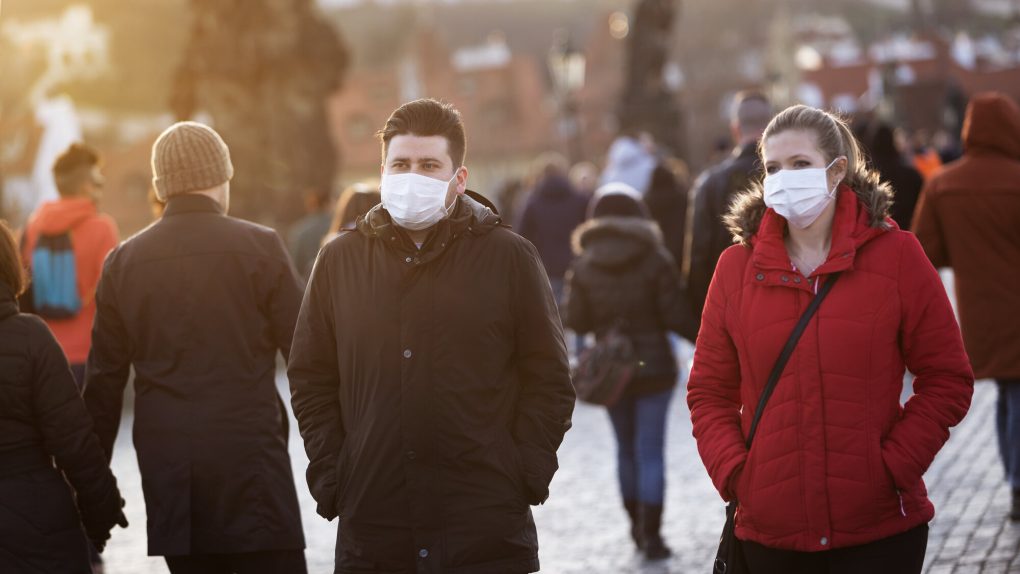- Diabetes is a significant risk factor for COVID-19, but doctors warn coronavirus survivors can also develop diabetes after clearing a covid infection.
- Some researchers think the novel coronavirus can determine the onset of a diabetes variation that might not fall into the current Type 1 or Type 2 categories. Instead, it might be a combination of the two.
- It’s unclear whether diabetes after COVID-19 is transitory or permanent, but a study did show that the virus can infect pancreatic cells involved in insulin production.
Diabetes is one of the major risk factors for COVID-19 patients, but from the early days of the pandemic, doctors observed that some of the people who survive the infection actually end up developing diabetes as well. This is a medical condition that affects millions of people worldwide, and it’s currently incurable.
Recent studies have shown that COVID-19 survivors developed diabetes in the weeks and months that followed their initial bout with the illness. Since then, additional studies have been published, as doctors are starting to understand what causes the onset of diabetes in COVID-19 survivors. It appears that the virus can infect cells of the pancreas, and this can lead to a case of diabetes that might never go away. The doctors do not have all the answers, as there are plenty of ongoing studies looking into diabetes secondary to the SARS-CoV-2 infection.
A report in The Washington Post looks at recent COVID-19-related diabetes research, saying that it’s still unclear how the illness might trigger Type 1 or Type 2 diabetes. But the number of diabetes cases that follow the infection is significant, with a study saying that some 14% of people who survived severe COVID-19 got diabetes. The researchers looked at data from more than 3,700 patients and found that COVID-19 might be why these patients developed diabetes.
But new diabetes cases have also been observed in patients who experienced mild or moderate coronavirus.
In Type 1 diabetes, people can’t make their own insulin, which is needed to regulate blood sugar. Type 2 diabetes patients make their insulin, but it’s either insufficient or their bodies reject it. It’s unclear which type of diabetes COVID-19 might trigger, as researchers have seen a mix of diabetes symptoms in COVID-19 patients.
SARS also induced diabetes in survivors, and SARS-CoV-2 appears to have the same behavior. The report notes that many people who develop diabetes during COVID-19 or after it have risk factors for diabetes, including obesity or family history. The use of dexamethasone can also elevate blood sugar during COVID-19 therapy. But there are COVID-19 patients with no preexisting diabetes risk factors that do develop diabetes.
Diabetes surgery professor at King’s College London Francesco Rubino started a global registry of COVID-19 patients who later developed diabetes, looking to find commonalities between cases that could demonstrate that COVID-19 is indeed a risk factor for diabetes. Rubino told The Post that he believes the COVID diabetes might be different from Type 1 and Type 2, as it could be a hybrid form. “It’s concerning,” he told the paper.
The report explains that pancreatic beta cells are in play in both Type 1 and Type 2 diabetes, the cells that produce insulin. The next step of proving a link between COVID-19 and diabetes is the study of these cells. One way to do it is to seek ACE2 receptors, which the novel coronavirus uses to infect cells, on beta cells. The Post notes that research is inconclusive as the pancreas breaks down quickly after death, so obtaining good samples is challenging.
Researchers from Cornell University were able to grow pancreas cells in a lab and infect them with the coronavirus. Vanderbilt University researchers found ACE2 receptors in the pancreas, but the study did not involve COVID-19 patients and found no evidence of ACE2 receptors in beta cells. A study from Italy found ACE2 receptors in beta cells, but the donors did not have COVID-19. “Until receptors in pancreatic beta cells in tissue from COVID-19 patients can be consistently confirmed by other researchers, the hunt for the mechanism underlying the diabetes-COVID-19 connection continues,” The Post wrote.
But researchers from the Ulm University Hospital might have just proven precisely that. COVID-19 infection can lead to beta cell destructions, which can lead to diabetes. The researchers showed that human beta cells express viral entry proteins or ACE2, and the infection can alter beta cells’ function. The scientists showed that the coronavirus could infect the human exocrine (pancreatic juice in digestion) and endocrine pancreas (hormones like insulin and glucagon) in both ex vivo and in vivo experiments. “Infection is associated with morphological, transcriptional and functional changes, including reduced numbers of insulin-secretory granules in [beta cells] and impaired glucose-stimulated insulin secretion,” they wrote.
“We demonstrate that the exocrine and endocrine compartments of the pancreas are susceptible to productive SARS-CoV-2 infection, which can perturb β-cell integrity,” they concluded. “The mechanism of virus-induced damage and whether infection has a direct consequence for glucose homeostasis or might even trigger diabetes mellitus remain under discussion and deserve future studies.”
Interestingly, the researchers also showed that remdesivir in ex vivo experiments led to an inhibition of viral replication, but this did not lead to an “entire rescue” of beta cell function. The full study is available in Nature.








